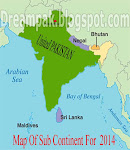KARACHI: “Everything I did is a part of history now. To live with history is difficult but there will be people, who will say one day, there was a man who did it and did it so differently.” Those were the last words of the legendary Moin Akhtar, as recorded in an interview with The Express Tribune , before he left the world’s stage – to a standing ovation awaiting his final bow. The iconic comedian died of coronary failure in Karachi on Friday. He was 61.
Master parodist and king of Urdu comedy, the man of a million characters but one identity and that of a true showman, Moin Akhtar was someone who could bring a smile to your face no matter how bad your circumstances.Born on December 24, 1950, Akhtar managed to achieve in the six dynamic decades of his life all one could imagine in such a small time span. He started off as a stand-up comedian in 1966-67 by impersonating Hollywood actor Anthony Quinn and John F Kennedy’s speech in which he also mimicked the voice of the former president. Akhtar was more than just a class act and that is why at a young age of 13, he played the character of Shylock in Shakespeare’sThe Merchant of Venice.
Be it theatre, TV, film, stand-up comedy, hosting and even singing Moin was the master of all crafts. It was his love for art and dedication to acting that made him famous not just within Pakistan but also across the border and the Middle East.
His plays like “Bakra Qiston pae “ and “Buddha Ghar Pae Hae” which he performed alongside Umer Sharif are still watched across the world on DVDs and YouTube.
He had already won wide acclaim following his regular appearances on Pakistan Television. He rendered several memorable performances alongside Anwar Maqsood and Bushra Ansari and is acknowledged as a pioneer, giving comedy in Pakistan a new look and direction.
Sach Much, Makan No 47, Half Plate, Rozy, Eid Train and Bandar Road sae Keamari are just some of the highlights of his career with PTV. His character of Rozy which was a series based on an adaptation of the Hollywood classic Tootsie brought his great acting talents on the mainstream, as some considered his performance equal or even better than Dustin Hoffman’s.
In his long-running show Loose Talk, Akhtar played more than 400 different characters in as many episodes and engaged in banter with Anwar Maqsood, who somehow managed to get the best out of him.
Akhtar was a proud recipient of the Sitara-e-Imtiaz and Pride of Performance but apart from that he hosted shows involving major dignitaries and has performed on stage alongside the likes of Indian legends Dilip Kumar, Lata Mangeshker and Madhuri Dixit to name a few.
However, the loss is felt by everyone and no one is more aggrieved other than his fellows, seniors and juniors.
“With Moin Akhtar ends an era of outclass mimicry , he was the best impersonator of Pakistan and he is more than just a great loss to performing arts in Pakistan. He was a great person with the ability of creating wonders” Veteran TV and theatre artist Talat Hussain said.
Celebrated comedian Umar Sharif considered Moin Akhtar his elder brother and his teacher. “I was planning to gather all the comedians in Pakistan to give a tribute to him, God had planned otherwise,” Sharif told The Express Tribune Senior artists like Rahat Kazmi are equally shocked by the loss. “ If a person can play over 250 characters in 250 different episodes of a TV show than the person is capable of doing anything, it is pointless to say that he left big shoes to fill, he is irreplaceable,” Kazmi told The Express Tribune.
“He was the epitome of comedy in Pakistan and in a class of his own. We are lucky as Pakistanis to be able to call him our own,” Samina Ahmed, a senior TV actress told The Express Tribune.
Behroze Sabzwari felt that the gap would never be filled. “We cannot imagine a TV or a stage without him but sadly now we have to accept this loss” Sabzwari said.
“He polished Pakistani comedy and brought finesse to it,” said actress Sania Saeed.
The younger lot of media professionals believe that they have lost an icon and a guiding light. “I cannot imagine a Pakistan without him, his images and words are etched in our memories and shall remain forever” Azfar Ali, a TV director told The Express Tribune.
People like Javed Akhtar and Daler Mehndi from India also expressed their sorrow over the loss. Before his sad departure, Akhtar was planning to write a book about his experiences with foreign diplomats and Indian stars whom he had met and had had the privilege of performing with over the course of his career.
Published in The Express Tribune, April 23rd, 2011.








